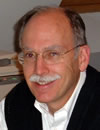What It Takes to Survive in a Fierce World
I meet weekly with a group of eight to ten men for prayer. One of the men is twenty-five and already successful in the corporate world. The pressures he faces and the demands on his time are enormous. His forty-year-old boss is in the hospital. For the last fifteen years, he has gone on little sleep and popped stimulants to try to stay on top of everything in  his department. He will be a basket case for the workplace for the rest of his life—if he gets out of the hospital alive. Whether we are praying for our young brother or someone else, our prayer group rarely spends a morning prayer time without praying for a Christian we know who is challenged by pressure, mobbing, graft, or lawsuit in the workplace. Jesus said, “If you were of the world, the world would love its own. Yet because you are not of the world, but I chose you out of the world, therefore the world hates you” (John 15:19 NKJV). If the world cannibalizes its own, imagine what it must think of God’s children.
his department. He will be a basket case for the workplace for the rest of his life—if he gets out of the hospital alive. Whether we are praying for our young brother or someone else, our prayer group rarely spends a morning prayer time without praying for a Christian we know who is challenged by pressure, mobbing, graft, or lawsuit in the workplace. Jesus said, “If you were of the world, the world would love its own. Yet because you are not of the world, but I chose you out of the world, therefore the world hates you” (John 15:19 NKJV). If the world cannibalizes its own, imagine what it must think of God’s children.
The Western world entered the sex craze in the mid-1960s. It has never gotten out of it. With the introduction of the Internet to the computer, pornography gained the potential of coming into nearly every home owning one. Twenty percent of all male Internet users visit porno sites regularly. That statistic means addiction—and that includes Christian males who are Internet users. Porno addiction results in far worse than ruined testimonies and guilty consciences; it also often means long struggles with perversion, ended ministries, ended jobs, ended relationships, ended marriages. When Peter said, “Be sober, be vigilant; because your adversary the devil walks about like a roaring lion, seeking whom he may devour” (1 Pet. 5:8), he wasn’t kidding. It seems as though the Devil gets smarter all the time.
Twenty-seven percent of the American population has engaged in binge drinking by age eighteen. American doctors and sociologists were alarmed by the statistic until they found out that the youth of Europe exceed American youth in binge drinking by twenty to thirty percent. Anyone who tries binge drinking is setting himself up to become an alcoholic. Barring some turnaround in this phenomenon, the resulting social problems coming to the Western world in the next twenty years are going to be beyond anything we have ever experienced.
We are all affected by politics. Laws politicians create affect our buying and selling, our education, our movements, our speech, our worship, our family lives—just to name a few. Several years ago, a U.S. congressman told a friend of mine that people offering drugs, sex, and money under the table accost every politician in Washington DC. That fact is partly why the senate and congress regularly pass laws policing their own members on matters of corruption. Washington is one of the cleaner political centers in the world. What politicians decide has an impact on all of us every day of our lives, usually positively but often negatively. Sometimes their ideas and motives are rather skewed.
Now the fact is, this fierce side of the world has been around for a long time. Somehow people have coped with it. On the other hand, many Christians have caved in and quit living or giving witness for Christ. If they had not, the world would have been fully converted long ago. By all indications, the problems Christians face in this world are getting worse. I haven’t even mentioned the fact that the killing of Christians is on the rise worldwide. The twentieth century produced more Christian martyrs than any previous century. In our own time, an average of 160,000 Christians are martyred worldwide annually. Some are martyred in the United States—something unthinkable a few decades ago. I am especially thinking of those who are as old as my twenty-five-year-old prayer partner when I say that living as a Christian is going to be harder for you than it was for previous generations. One of the first responses to this statement is, “Oh, then I will have to work harder. I will have to perform more consistently. I will have to do more.” And perhaps for most, that statement would force the conclusion, “No way! I have to work hard enough. I am busy enough already.” We don’t need to do more to survive a fierce world; we need to do less.
If we would listen to the voice of Jesus a moment, we would be able to get out of the vicious cycle of do, do, do, go, go, go. We would stop buying the world’s methods of getting relief. When Martha complained to Jesus that Mary needed to get up, leave the discussion, and help serve, Jesus replied that Mary had “chosen the better part” by sitting and listening to Him. Before His greatest hour of trial, Jesus asked the disciples to pray with Him. Overburdened, they slept instead. Jesus asked them, “Could you not watch one hour? Watch and pray, lest you enter into temptation. The spirit indeed is willing, but the flesh is weak” (Mark 14:37-38). We all know the story of how hard and bitter a fall Peter had after sleeping instead of praying. Today we do not sleep. We chat, we blog, we surf the Internet, we talk on cell phones, we watch videos late into the night. We are a full step beyond Peter in setting ourselves up for spiritual failure. Getting to where we need to be isn’t that complicated. We need to do less, not more.
If there is a challenge I would give my adult children and the Christians of their generation, it is this: you have the potential of being one of the greatest successes or greatest failures as a generation that faces tougher challenges than ever before. It all depends on getting this thing right: take personal time for God every day. A hymn says the following:
’Tis the Blessed Hour of Prayer
When our hearts lowly bend
And we gather to Jesus,
Our savior and friend
If we come to him in faith
His protection we share.
What a balm for the weary!
Oh how sweet to be there.
In 1 Timothy 3, Paul predicted that the world would get fierce. He described it well. Either that time isn’t far off, or it is already on us. In the past, many Christians specialized in learning Bible prophecy to prepare for the worst in the future. Today more people prepare for the worst by getting informed about what is going on in the world. Learning prophecy is important; the Bible says so. Informing yourself about what is going on in the world is just good sense. But getting informed is not the main thing. Getting connected is. Put away the TV, put away the computer, put away the cell phones, quit listening to music, put away the keys to the car, put down your book or magazine, get away from your friends. Get unplugged. Get connected to God. Get on your knees or sit if you must or lie on your face or stand. Get a Bible and read and pray. Open up to God. There is no one who understands pressure, pain, sorrow, opposition, temptation, or the power of sin quite like Christ does. Hebrews 4:15 says He can sympathize with our weaknesses (the King James says “touched.” Now that is personal.). There is no one who can tell you what you need to do quite like God can. Through spending time alone with God, we become more like Him and more of the person He always wanted us to be.
Richard Chenevix Trench was one of England’s most brilliant Christian intellects in his day. He was a scholar in Latin, Greek, and Theology. He was a pastor who cared for his people (and ultimately was made a bishop). He was politically active. He understood the whole gamut of human pursuit, hardship, pressure, conflict, and sorrow rather well. The source of his strength is revealed in one of his poems, which ends with these lines.
Why, therefore, should we do ourselves this wrong,
Or others—that we are not always strong—
That we are sometimes overborne with care—
That we should ever weak or heartless be,
Anxious or troubled—when with us is prayer,
And joy and strength and courage are with Thee?
Don’t do more. Do less. Connect with God every day through the Bible and prayer. This discipline is the key to surviving a fierce world. Your future and the future of others depend on it.
 Jeff Brown was born in Muncie, Indiana and studied Biology at Ball State University (Muncie, IN). After college, he trained for the ministry at Central Baptist Theology Seminary (Plymouth, MN). He is a Ph.D. candidate at Central. He has served as a teacher, a pastor in Michigan for seven years, and a church-planting pastor in Germany for 17 years. He and his wife, Linda have four grown children. Jeff Brown was born in Muncie, Indiana and studied Biology at Ball State University (Muncie, IN). After college, he trained for the ministry at Central Baptist Theology Seminary (Plymouth, MN). He is a Ph.D. candidate at Central. He has served as a teacher, a pastor in Michigan for seven years, and a church-planting pastor in Germany for 17 years. He and his wife, Linda have four grown children. |
- 6 views


Discussion